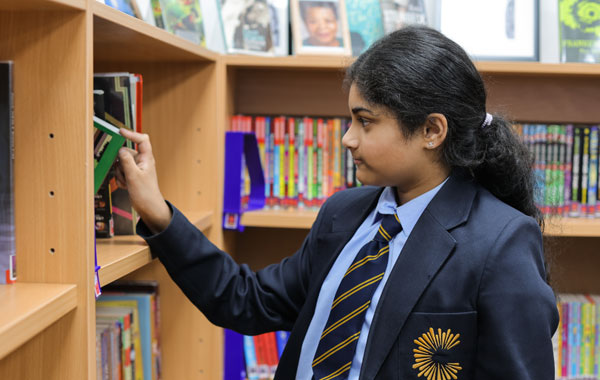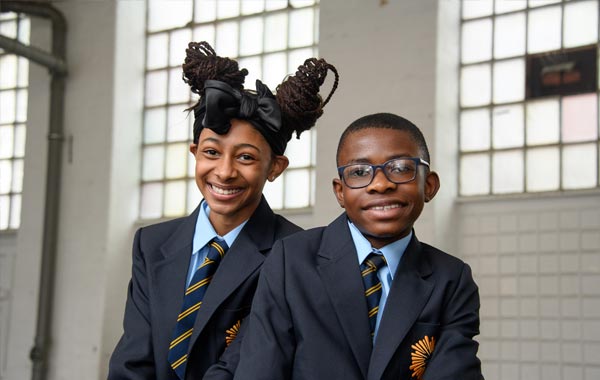Since the outbreak of COVID-19, we have built a robust remote learning package, and we offer several ways for students and parents to stay connected.
Due to the Academy closure on Friday 9th January 2026, please find information about how to access online resources for students. Students should aim to follow their daily timetable. Students should use their GCSEPod, SENECA and SPARXS logins for the online sites to be able to complete set work. If students have issues accessing these sites please use TEAMS to contact your class teacher.
HOW WE DO REMOTE LEARNING AT JQA
Since the outbreak of COVID-19, we have built a robust remote learning package.
We use Microsoft Teams for timetabled Live Lessons. A guide for parents/carers and students on how to use Microsoft Teams can be found here:
Microsoft-Teams-Student-Guide
Each cohort has a Microsoft Teams group where all homework is set for each subject and live lessons and assigned work are scheduled and found in this group, should we need to put this provision in place due to a local/national issue. All students must have access to Microsoft Teams and Microsoft Word on a device.
If you are using a mobile phone to submit homework Assignments, watch this short guide here: https://www.youtube.com/watch?v=y7HXY7uR8Q8
If you are using a laptop/desktop to submit homework Assignment, watch this short guide here: https://www.youtube.com/watch?v=dCjisF8Z4cI
Below you will find more information about our remote learning offer, and a link to the remote learning policy.
Remote Learning Policy
In the event of a ‘contingency situation’ with whole groups or cohorts learning from home, we teach the same curriculum remotely as we do in school wherever possible and appropriate. However, we may need to make some adaptations in some subjects to combine classes and have them taught by subject experts.
Secondary school-aged pupils not working towards formal qualifications this year:
Four timetabled live lessons, plus an hour for Assignment work.
Secondary school-aged pupils working towards formal qualifications this year:
Four timetabled live lessons, plus 2 hours for Assignment work.
- In the event of a ‘contingency situation’, we would use Microsoft Teams to deliver timetabled live lessons and set assignments for independent work. All students have a username and password to www.office.com.
- If your child is away from school due to a positive test, they can access ‘keeping in touch’ work from their teachers by emailing them.
We recognise that some students may not have suitable online access at home. We take the following approaches to support those pupils to access remote education:
- We have an open online form to request ‘digital support’ which is reviewed regularly and families invited in to collect devices:
- The admin team, collaborate with families who make requests via this form.
- We encourage all to be able to get online and submit assignments so they can receive appropriate feedback on their work.
We use a combination of the following approaches to teach students remotely in a contingency situation:
- Live timetabled teaching (online lessons via Microsoft Teams)
- ‘Assignments’ set by class teachers for students to complete independently and receive feedback.
- If a contingency situation occurred and classes/cohorts had to learn from home, we expect all students to be ready to follow their Contingency timetable and to actively participate in all timetabled live lessons, abiding by the clear expectations of online etiquette for live lessons.
- We expect parents/carers to ensure their child is ready, respectful and safe, abiding by our etiquette and code of conduct in the appendices in our Behaviour Procedures on the Academy website.
- We expect parents/carers to pro-actively collaborate with us to resolve barriers to accessing live lessons by contacting the Academy via the right channels.
- We expect parents/carers to familiarise themselves with the guides and timetables we have put online to support them to help their child continue to learn.
- In a contingency situation where classes/cohorts are learning from home, we record attendance at each live lesson, and we alert parents to any absence at the end of each day. Where work is not completed to a sufficient standard, parents/carers can expect to be contacted by their child’s teacher(s) and/or pastoral leaders.
- Where we have concerns over attendance or engagement that are persistent, parents/carers can expect pastoral staff to be in phone contact and collaborate with parents/carers and the child address barriers. If persistent disengagement continues, following significant intervention, we will class the child as ‘vulnerable’ (as they are missing too much learning) and will insist they join students on site safely to ensure they don’t miss out on further learning.
Feedback can take many forms and may not always mean extensive written comments for individual children.
Students receive a range of feedback – ‘live feedback’ and ‘whole class feedback’ as well as self-assessment via quizzes, for example. Feedback is given frequently and appropriately in line with the sequences of learning,. It is vital students are completing Assignments set by staff during their independent practice each afternoon.
Our Remote Learning Policy located above outlines the ways we will support students with SEND in detail.





